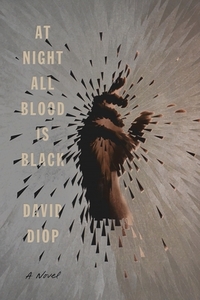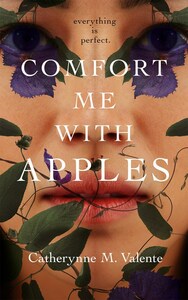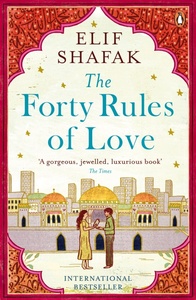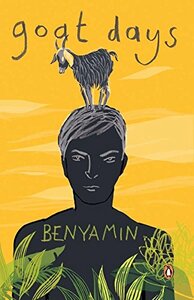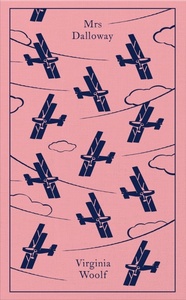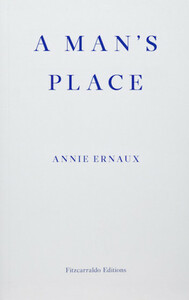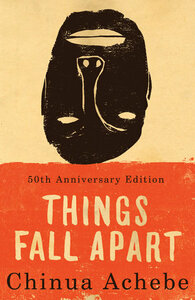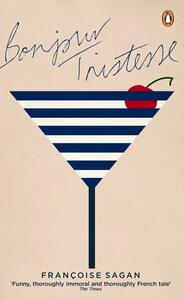Take a photo of a barcode or cover
notesofacrocodile's Reviews (257)
beautiful, violent, heartbreaking and covered so much within its short length
3.5☆ — there is something about the quality of natalia ginzburg's writing and the way that she crafts characters that i like very much, everyone feels so real- we know these characters at their most pompous and at the height of their caustic tendencies, but also at their most dejected and vulnerable. my only complaints were that the writing in this book with regard to the flow of the plot felt like it was dragging at times, and the cast of the characters which increased by a lot considering the short span of time means that it would be easy to be confused when trying to remember about who was who.
3☆ — need this author to try her hand at writing dark fairytale-esque stories because her writing had an element of otherworldliness that would definitely suit the genre
// "every true love and friendship is a story of unexpected transformation. if we are the same person before and after we loved, that means we haven’t loved enough."
what you must understand about this novel is that it is a book that goes to great lengths to describe love. love for god in particular, but how you can love god even through your fellow humans, in your thoughts, beliefs and in your actions. it was fiery and passionate, but it was also quiet and tender, like the hand of a lover cupping your chin. it offers your mind an opportunity to float above and away from the mundane, everyday angle of life and see everything as part of something so much bigger and breathtaking. at the same time, it reminds us of that unique emotion that has been so successful in binding humans together since the earliest times: love. when this book discusses love, it does not consider it through the narrow, restrictive lens of romantic love, but a transcending, all-encompassing and liberating kind of love.
the writing of the novel complemented its themes almost too well; when discussing matters of spirituality and notions of such a grand scale, ordinary writing would have ruined the story; it would have reduced the story to a lacklustre imitation of what it could have been. instead, elif shafak’s writing flowed as smoothly and beautifully as the skirts of the whirling dervishes, infused with a quality of otherworldliness and ethereality.
the pacing is slow, which is to be expected for a story that deals with emotional and spiritual themes. however, this did not in any way deter me from continuing with the book since, as i had mentioned, the writing was simply too captivating. the writer lures you in with the promise of a legendary tale, and she delivers it.
would recommend if you would like to read about a connection between two humans that transcends conventional boundaries in the most liberating way, and overall, a revolutionary story about love and what love really means.
what you must understand about this novel is that it is a book that goes to great lengths to describe love. love for god in particular, but how you can love god even through your fellow humans, in your thoughts, beliefs and in your actions. it was fiery and passionate, but it was also quiet and tender, like the hand of a lover cupping your chin. it offers your mind an opportunity to float above and away from the mundane, everyday angle of life and see everything as part of something so much bigger and breathtaking. at the same time, it reminds us of that unique emotion that has been so successful in binding humans together since the earliest times: love. when this book discusses love, it does not consider it through the narrow, restrictive lens of romantic love, but a transcending, all-encompassing and liberating kind of love.
the writing of the novel complemented its themes almost too well; when discussing matters of spirituality and notions of such a grand scale, ordinary writing would have ruined the story; it would have reduced the story to a lacklustre imitation of what it could have been. instead, elif shafak’s writing flowed as smoothly and beautifully as the skirts of the whirling dervishes, infused with a quality of otherworldliness and ethereality.
the pacing is slow, which is to be expected for a story that deals with emotional and spiritual themes. however, this did not in any way deter me from continuing with the book since, as i had mentioned, the writing was simply too captivating. the writer lures you in with the promise of a legendary tale, and she delivers it.
would recommend if you would like to read about a connection between two humans that transcends conventional boundaries in the most liberating way, and overall, a revolutionary story about love and what love really means.
a heart-wrenching, desperate tale with a heart that aches deeply. the story of a poor immigrant migrating to unknown lands in search of decent wages to provide a satisfactory standard of living for their families back home is not unfamiliar, and this story takes it a notch further by rooting it in a specific regional context and mingling it with strands of very real accounts of such migrant workers. it's story that gradually seems to shed its hope in flakes, but only to reveal a heart that hopes all the more
4☆ — found parts of this rather poignant. one of the many things that moved me in this work is a part towards the end, where clarissa (the protagonist) briefly ponders over thoughts of suicide and death. coupling this with other scenes with depictions that can be categorised under the theme of depression/mental illness, and considering that virginia woolf herself suffered from ill mental health, the impact definitely hit the spot. there is also a strong portrayal of grief in varying shades; grief for the loss of a loved one, grief for youth, grief for relationships never to be the same again, grief for what could have been in the past. i found the writing absorbing as it ruminated on the past while keeping a toe in the present. loved this.
"A while later I started writing a novel in which my father was the main character. Halfway through the book I began to experience feelings of disgust.
I realize now that a novel is out of the question. In order to tell the story of a life governed by necessity, I have no right to adopt an artistic approach, or attempt to produce something ‘moving’ or ‘gripping’. I shall collate my father’s words, tastes and mannerisms, the main events of his life, all the external evidence of his existence, an existence which I too shared.
No lyrical reminiscences, no triumphant displays of irony. This neutral way of writing comes to me naturally, it is the very same style I used when I wrote home telling my parents the latest news."
I realize now that a novel is out of the question. In order to tell the story of a life governed by necessity, I have no right to adopt an artistic approach, or attempt to produce something ‘moving’ or ‘gripping’. I shall collate my father’s words, tastes and mannerisms, the main events of his life, all the external evidence of his existence, an existence which I too shared.
No lyrical reminiscences, no triumphant displays of irony. This neutral way of writing comes to me naturally, it is the very same style I used when I wrote home telling my parents the latest news."
4☆ — "who has not asked himself at some time or other: am i a monster or is this what it means to be a person?"
4.5☆ — what a riveting read, after i was done i fully understood why this novel is so highly recommended in academic and reader circles alike. chinua achebe expertly leads us into the heart of a society with all of its complexities- its customs, traditions, religion, and how to worship and appease the gods; local perspectives on masculinity, and what is expected of men and women. there is no plot as such for the most part, but it nevertheless makes for an interesting read as you dive into this tumultuous world. i loved the second half, where the local characters interact with the white colonisers, and how the white colonisers attempt to advance their colonisation in various ways, spearheaded by religion. this is definitely a novel that struck me as unique in a sense that i'm not able to put into words.
// "the white man is very clever. he came quietly and peaceably with his religion. we were amused at his foolishness and allowed him to stay. now he has won our brothers, and our clan can no longer act like one. he has put a knife on the things that held us together and we have fallen apart."
// "the white man is very clever. he came quietly and peaceably with his religion. we were amused at his foolishness and allowed him to stay. now he has won our brothers, and our clan can no longer act like one. he has put a knife on the things that held us together and we have fallen apart."
